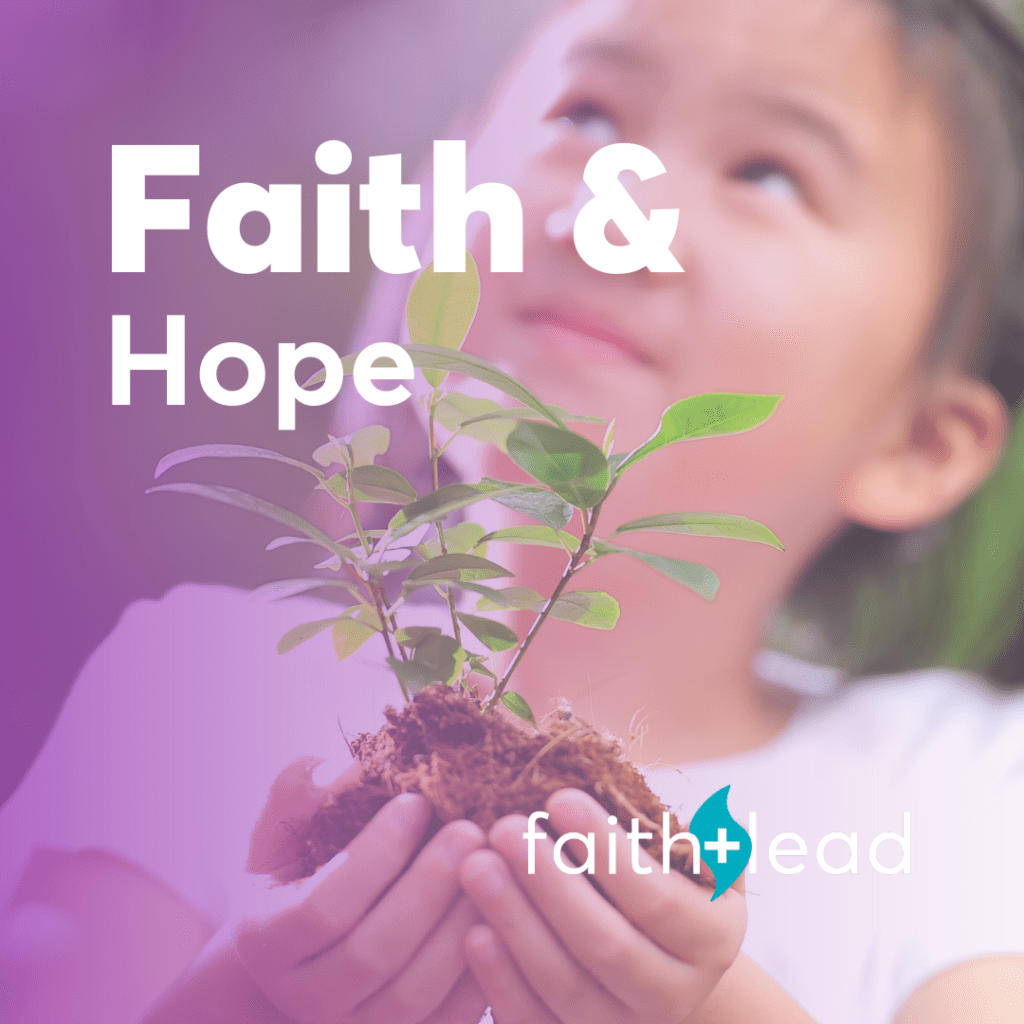Faith+Lead is grateful for this interview with pastor and author Molly Phinney Baskette about her most recent book How to Begin When Your World Is Ending: A Spiritual Field Guide to Joy Despite Everything.
Faith+Lead: To begin, tell us some about how, why, and for whom you wrote this book.
Molly Baskette: Like most things I write, I started writing it because I needed it. It began as a public blog and a private journal while I was in cancer treatment for Ewing’s Sarcoma—my way of dumping out thoughts, feelings, images and information and trying to wrestle some meaning, if not make sense, out of what was happening to me. I was a pastor, a young mom, and a congenital optimist who was suddenly having some very morbid thoughts that didn’t square with my, until then, pretty durable faith.
I began thinking about all the extraordinary people I’d pastored through really awful things: people convicted of rape and murder, those living with treatment-resistant depression, PTSD, unremitting eating disorders, domestic and sexual abuse survivors, those suffering through pregnancy loss, divorce, or fleeing violence in another country, those coming out as queer to fundamentalist parents or discerning their true gender.
All of these people had risen from their ashes, had found a way to go on, and were showing us how to have a no-BS faith in a God who was real and at work in their lives. I wanted to tell their stories alongside mine. To show what is possible, and shine a light for someone stumbling down the road behind them.
I also think of the book as a kind of progressive “disaster theology.” Seminary helped me forge my own systematic theology, blueprints for a faith that cancer (and lots of other Life Events) tested in real-world conditions, and I wanted to help people develop their own sense of why bad things happen to good people, what prayer might actually be good for, etc. There are a lot of books out there that teach a laughably simplistic “God has a plan/everything happens for a reason/trust in God above all else” theology, that either bright-sides or blames the victim. I wanted to offer a “pastor in your pocket” devotional to anyone struggling through the hardest parts of being human—a theology that would actually ring true, feel practical and do-able, and give them a little more hope and agency back (and maybe even make them chuckle or LOL occasionally).
Faith+Lead: What is hope about, for you? What brought you to this understanding?
Molly Baskette: One of my favorite theologians of hope is not a religious person, but the author and activist Rebecca Solnit. She wrote in her masterwork Hope in the Dark, “Hope locates itself in the premises that we don’t know what will happen and that in the spaciousness of uncertainty is room to act.”
I’m also influenced by Octavia Butler’s sci-fi Parable series, of her mantra that God is Change. We hate change because it is exhausting, and demanding—but to the person who is suffering and struggling and oppressed, change is a gift. It means however bad things are, they are not static. They may get worse, but they may also get better. I like to quote this cliché to my church folks, a little tongue in cheek, “Everything turns out alright in the end. If it’s not alright, it’s not the end.” Our stories are still unfolding. We are still becoming.
God doesn’t send the disaster, give a 4-year-old terminal leukemia or take out half a million people with a tsunami. But God will use every disaster to draw near to us, help us dig deeper, hopefully relying less on ego and material prosperity and “success” and relying more on soul and community, nudging us to live more interdependently and vulnerably. This isn’t to say we have to be hopeful when we’re in the middle of the disaster. Being curious is a good start—asking ourselves “what might happen next? What can I learn from this? How can I grow?”
Hope is the simple admission that: if life is hard, it might get better, especially when we claim our agency and work with God for the world we want to live in. Conversely, if life is currently good, don’t get too attached (but please relax and enjoy this brief moment of serenity!). And what’s the alternative to hoping: giving up? Where’s the fun in that?
Faith+Lead: How and why can Christian people avoid bright-siding or toxic positivity?
Molly Baskette: Why should Christians avoid bright-siding? Because it’s not only a bad look for us, it’s complete nonsense. Our senses tell us what life is really like: it’s beautiful, and it’s hard. It’s not for the faint of heart. And when we require people to believe anything that happens is “for the best” we are denying (at least) half of reality. That doesn’t help us find a way forward, it only makes us feel worse because we can’t immediately get on board with this dreadful thing we’re living through.
Also, toxic positivity has nothing to do with our actual religion. We worship a teacher who was executed by the state for daring to say things like “love your enemies and bless those who curse you.” Jesus told his disciples over and over that the path was not going to be easy—only that it would be worth the cost. It would offer them a life that was really worth living.
Anyhow, what is the sweet without the salty? I want ALL of it: joy and sorrow, hilarity and ferocity, the falling-headlong-in-love and the fetal-position-sobbing-till-you-barf-after-the-breakup. God invented the orgasm and the pain receptors. This is what it is to be human—to gain tolerance in having a whole range of experiences, adventures and becomings. I’m gonna quote my favorite Rilke here: “let everything happen to you, beauty and terror. Just keep going. No feeling is final.”
Faith+Lead: From your experience, what (in addition to giving your book, obviously) are some faithful ways to be supportive of people whose lives, as they have known them, are ending?
Molly Baskette: It sounds simple, but it’s really the hardest thing to do: just be with them in a calm, non-needy way, the “ministry of presence” we div school types go on about. Don’t talk much. Don’t offer platitudes, except for the bulletproof, “I love you so much. It really sucks, what you are going through, and I hate this for you.” Let them have any feelings they are having. If they are literally dying and not just undergoing an enormous life change, and are still a bit in denial that death is near, don’t push them to face facts. If they want to talk about death, about regrets, about fears, about legacy, give them space to talk about that—particularly if no one else is letting them.
Be honest with them about your beliefs, particularly if you do believe in an afterlife–but don’t push your agenda. Don’t flush your anxiety about losing them onto them by needing them to be more positive than they are. It’s really hard, especially if your loved one is physically sick, in pain or depressed—those things are going to mask their real personality. Meet them where they are. That is actually a great analgesic, that kind of quiet empathy.
And really do show up, not in a big, splashy, exhausting way but in a quiet, consistent way. It doesn’t have to be sexy and creative and exciting, what you do for the person you love who is in trouble. When I was in treatment, two people I love did very simple things that helped enormously. Soon after diagnosis my sister-in-law Carmen, who lived 3,000 miles away, bought a box of exactly 14 glittery pink cards and sent me one for each chemo cycle completed. I taped them to the wall of our living room where my family and I passed a dozen times a day. And when I was hospitalized with a dangerously low white blood cell count, my friend Sue braved crosstown traffic every day Christmas week to make me and my IV pole walk up and down the halls of the hospital, making me laugh a little and letting me cry a lot.
Faith+Lead: What is helpful about sharing personal stories, as you do in your book, when people are going through a traumatic time of their life? What are the pitfalls?
Molly Baskette: I tell a lot of personal stories in my preaching, because 1) they are the stories I know best and 2) they are the ones I always have permission to tell. I try to tell “my” stories in a way that communicates a universal human experience, so that anyone can see themselves in the story, and be encouraged, or challenged, or gain insight. I try to cast myself as the foil in a cautionary tale rather than the hero, though sometimes my ego gets the best of me. And I also tell a lot of stories about other people, particularly when they let me write about them as fully human, not heroes but everyday flawed people, because I think stories are so much more memorable and relatable than other kinds of preaching, analytic or even poetic preaching. Storytelling is the oldest form of human communication, older than the doctoral dissertation, if you can believe that.
The pitfalls of telling stories is that, well—a good story has a beginning, middle and end, and real life is not like that. Our real human stories are not over until we die—and even then, who knows? (see chapter 2, “How to Mystical,” for my thoughts on the afterlife). We are in a continual process of becoming, and “happy endings” deny that reality.
Another pitfall of telling stories to help someone in a difficult moment about other people who have had that same experience is that it might come off as minimizing their pain, or ignoring their context, particulars of race, class, ability/disability, family structure, etc: “it was so easy for this other person, why can’t you do it?” and make them feel worse than they did before. Here’s where the universalizing of the story is really key—offering the story in such a way that they can take the pieces that help them and customize it to make meaning and find a way forward in their own situation. I love this quote attributed to Victor Frankl for this: “Between stimulus and response, there is a space. And in that space lies our power to choose. And in our choice lies our growth and our freedom.”




